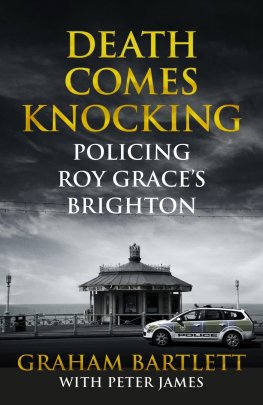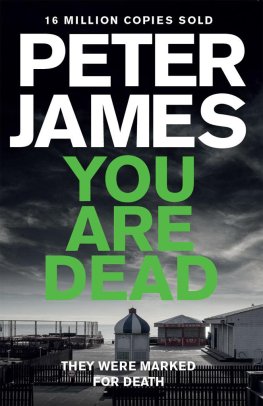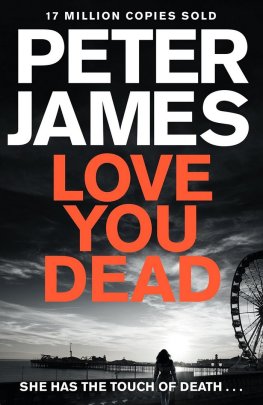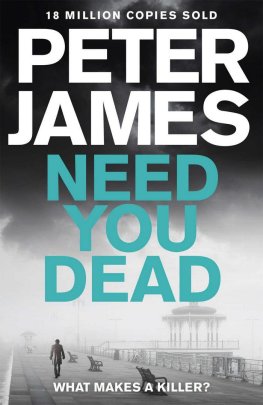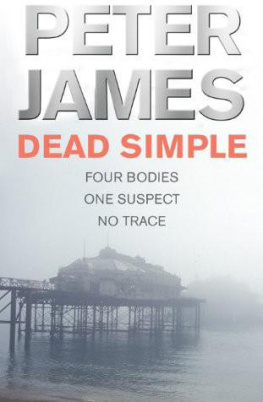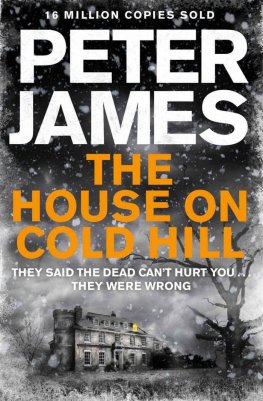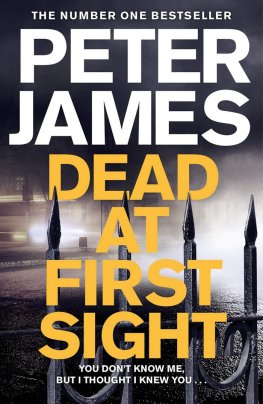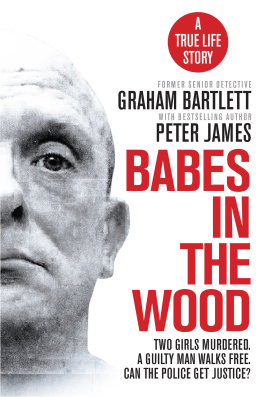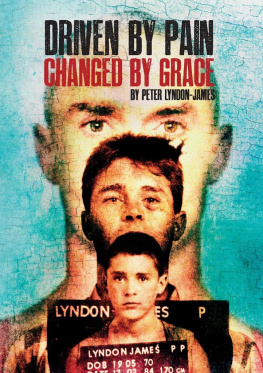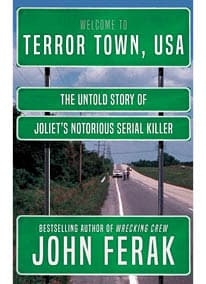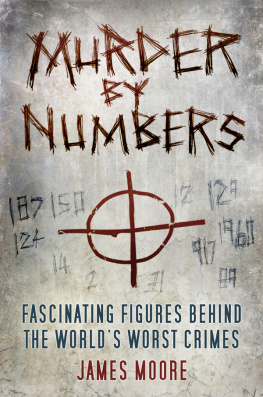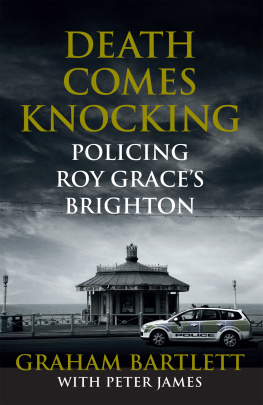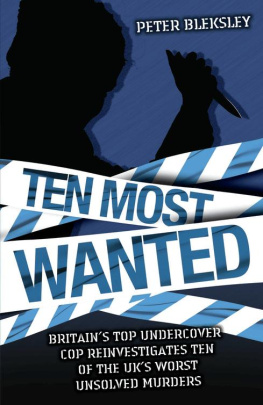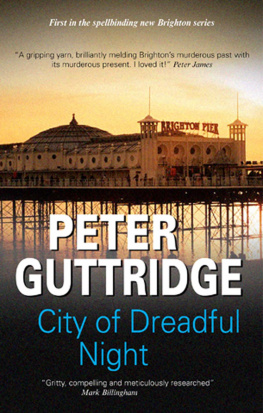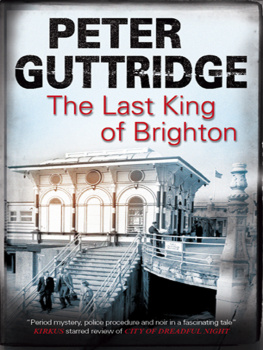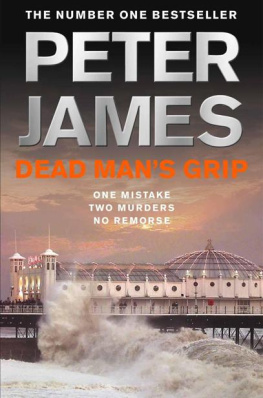Peter James, Graham Bartlett
Death Comes Knocking: Policing Roy Graces Brighton
With all my love for Julie, Conall, Niamh and Deaglan
my reasons for being


For many years my real life Roy Grace, Detective Chief Superintendent David Gaylor, was my principal contact in Sussex Police, working closely with me on the planning of my stories and introducing me to any officers he felt would be helpful to my research on each successive Roy Grace novel, to lend my books the authenticity I try hard to maintain. When he retired, I was immensely fortunate to have that baton taken on by his good friend, Chief Superintendent Graham Bartlett, himself a former senior homicide detective, who then became Commander of Brighton and Hove Police.
Graham and I instantly hit it off and he was an invaluable help to me for several years also becoming a very good friend. When he was coming up to retirement, at the almost ridicuously young age of forty-eight, he again ensured that I had a wide number of officers, at all levels, who would continue to give me all the access and research help that I would need, because he felt that the books gave the public an accurate and informative insight into what is really involved in policing. He also told me that he harboured ambitions to become a published author, and sent me examples of blogs he had written over the years, for me to judge his penmanship skills.
I was very impressed by his writing style, which was clear, lucid, very readable and, most importantly of all, highly engaging. He told me he would like to write a book in his retirement, and asked if I would be willing to offer some guidance. I agreed and arranged to meet up with him for a bite of lunch.
Then I had a true light bulb moment. Many people had been suggesting to me, over the years, that I should write a non-fiction book about my research with the police. As I neared the country pub where we were meeting, the idea crystalized in my head and I became increasingly excited. Throughout his thirty-year career, Graham had the unique experience of policing Brighton and Hove at every rank and had been involved in many of the cases that provided inspiration both for characters and for plots of my novels. He clearly had writing talent. Might he consider collaborating on a book with me about what it was really like to be a police officer in Roy Graces Brighton? I felt I could work with him and steer him.
He agreed enthusiastically, so I pitched the idea to my agent and to my publishers who all loved it. I asked Graham to write the first chapter and send it to me.
When I read the opening lines, I groaned inwardly! Unlike in his blogs, he had fallen into the same trap of so many police officers who fancy themselves, after retirement, as authors. He had tried hard but still slipped into plod speak from time to time, struggling to shake off his training that had taught him the detailed formality required in witness statements.
Graham needed direction, and if I could give him that, I knew he was capable of brilliance. I wondered how I was going to break it to him gently that his writing ambition was in danger of falling at the first hurdle unless he would accept my advice. Although he had been a very tough cop, afraid of no-one, he had a deeply sensitive side. I knew from those blogs that he was a genuinely capable writer, but would he take my criticism? And more importantly, what guidance could I give him?
I need not have worried. Graham happily absorbed the feedback, always eager to learn and improve. He knew he was a beginner but his passion and dedication drove him on. Together, we chose the stories, I coached him to find a new and more engaging writing style and the rest, as they say, is history. And often, quite a dark one... but with more than a few light touches of true gallows humour.
Peter James
Sussex
Not long ago, some people would have urged you to buy just a one-way ticket to Brighton rather than bothering with a return chances were youd be dead before you could use the homeward part.
Slaughterhouse of Europe, Crime Capital of Britain, Drugs Death Capital of the UK. Soubriquets that have consistently defined the town of Brighton now the City of Brighton and Hove since Regency days, and with some accuracy.
Two women, separately murdered and stuffed into railway trunks; three members of the same family bludgeoned to death by a fourth; a Chief Constable struck down in his own office with a fire poker and a Prime Minister and her entire cabinet narrowly escaping assassination. All of this happened in and around Brighton.
And as you stroll jauntily down Queens Road from the railway station to the seaside, dont fantasize about building sandcastles on the beach; there is no sand, just the stones that Mods and Rockers hurled at each other during their pitched battles of the 1960s and again in the 1980s. Rising above you to the east is the hilltop racecourse, with its picturesque downland and coastal views; this was where the Razor Gangs prowled in the 1930s, keen to give a Glasgow grin the scar from a slash from ear to mouth which looks like a joyless smile to anyone who crossed them.
Aside from these historical horrors, dreadful things still happen in Brighton today. On the surface it is one of the most stunningly beautiful cities in the UK, pulsing with individuality, host to a wide and diverse creative population, a long-favoured home to many great writers, artists and actors, including the late Sir Laurence Olivier, a thriving conference centre enjoyed by both the Conservative and Labour parties, with two renowned universities, one-off shops and a vast array of innovative restaurants and unique hotels. Yet it has always had a contrasting menacing side.
Brightons dark underbelly has been its defining feature since it was first colonized as a party town in the 1700s by the Prince Regent, who would become King George IV. Following the royal lead, posh toffs from London took to descending on the town for dirty weekends. In the mid-nineteenth century, the new railway line from the capital opened the place to the lower classes, among them, it seems, every enterprising villain who saw opportunity in its riches.
Its a place where for a few pounds ex-employees have snatched their former bosses off the street and beat them half to death, where bodies can be spirited away, chopped up and left as carrion, where you can be gunned down for just trying to sell a van. And, when the local outlaws arent killing each other, they are robbing the elderly and confused or selling brick dust with a pinch of heroin to make a fast buck from desperate addicts. The grubbiness, the seediness and the violence are so powerfully drawn upon by Graham Greene as the backdrop for the wonderfully dark and evil Brighton Rock, the very novel that inspired internationally-acclaimed bestselling author Peter James to become a writer. And he had no further to look than Brighton, his home town, as the perfect setting for the Roy Grace novels.
How do I know all this? I was its police chief for four rollercoaster years. And I had policed its streets for nearly thirty. I loved it. Im the only person in over a quarter of a century to have served in Brighton at every rank from Police Constable (PC) to Chief Superintendent; I saw it from every angle.
There was never a plan B for me. My mum, I think, quietly worried about my single-minded ambition to become a cop. She always supported me every step of the way, but was anxious of what my reaction would be if I failed. That would never happen.

